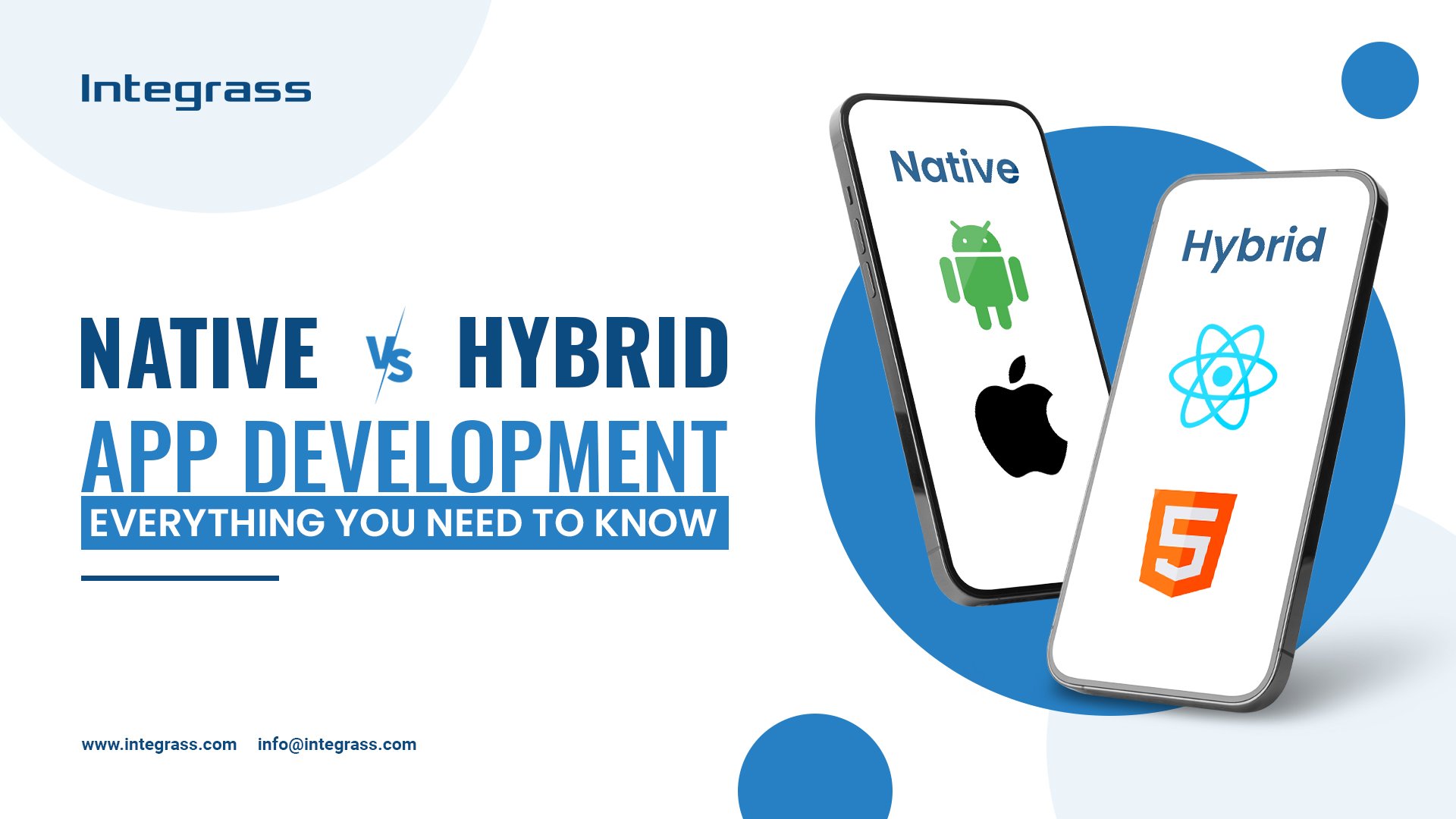In today’s fast-paced digital world, mobile apps have become essential for businesses looking to stay competitive. Whether you’re a startup or an established enterprise, the question of native vs. hybrid app development is likely on your mind. Choosing the right approach can significantly impact your project’s success, user experience, and cost-efficiency. So, let’s dive into everything you need to know about native and hybrid app development.
Understanding Native App Development
Native app development involves creating applications specifically for a particular platform, such as iOS or Android. Developers use platform-specific languages—Swift or Objective-C for iOS and Java or Kotlin for Android. This approach allows the app to take full advantage of the device’s features, offering a smooth, high-performance experience.
Advantages of Native App Development
- Performance: Native apps are optimized for the platform they’re built on, which means they run faster and more efficiently. Users can enjoy seamless navigation and quick response times.
- User Experience: Since native apps adhere to the specific guidelines of the platform, they provide a more intuitive and consistent user experience. This alignment with platform conventions makes the app feel more natural to the users.
- Access to Device Features: Native development allows direct access to all device features, such as the camera, GPS, and push notifications. This capability ensures that the app can utilize these features to their fullest extent.
- Security: Native apps are often more secure as they can leverage the built-in security features of the platform. Regular updates and patches from the platform providers also enhance security.
Disadvantages of Native App Development
- Cost: Developing native apps for multiple platforms requires separate codebases, which can significantly increase development time and cost. If you need an app for both iOS and Android, you’ll essentially be developing two different apps.
- Time-Consuming: Managing separate codebases means more time spent on development, testing, and maintenance. Any updates or bug fixes need to be implemented separately for each platform.
Exploring Hybrid App Development
Hybrid app development, on the other hand, involves creating a single app that runs on multiple platforms. Developers use web technologies like HTML, CSS, and JavaScript, and frameworks such as React Native or Flutter to create these apps. Hybrid apps are essentially web apps encapsulated in a native shell, allowing them to be distributed through app stores.
Advantages of Hybrid App Development
- Cost-Effective: Since hybrid apps share a single codebase for all platforms, development and maintenance costs are significantly lower. This approach is particularly beneficial for startups and small businesses with limited budgets.
- Faster Development: A single codebase means quicker development and deployment. You can reach a wider audience in less time compared to developing separate native apps.
- Easy Updates: Updating a hybrid app is simpler as you only need to make changes once. These updates are then reflected across all platforms, streamlining the process.
- Cross-Platform Compatibility: Hybrid apps can run on multiple platforms with minimal modifications, making them highly versatile.
Disadvantages of Hybrid App Development
- Performance Issues: Hybrid apps may not perform as smoothly as native apps, especially for resource-intensive applications. This performance gap can lead to slower load times and less responsive interactions.
- Limited Access to Device Features: While hybrid apps can access some device features, they don’t have the same level of access as native apps. This limitation can restrict the app’s functionality and user experience.
- User Experience: The user experience may not be as seamless or consistent as with native apps. Hybrid apps might struggle to match the platform-specific design and behavior guidelines, leading to a less intuitive user experience.
The Future of Mobile App Development
As technology evolves, the lines between native and hybrid app development are blurring. Progressive Web Apps (PWAs) and advancements in hybrid frameworks are making it easier to create high-performing, cross-platform apps. Businesses must stay informed about these trends to make strategic decisions in mobile app development.
Choosing Between Native and Hybrid App Development
The decision between native and hybrid app development ultimately depends on your specific business needs, budget, and target audience. Here are some factors to consider:
- Performance Requirements: If your app requires high performance and extensive use of device features, native development is the way to go. Games, AR/VR applications, and other resource-intensive apps benefit greatly from native development.
- Budget Constraints: For businesses with limited budgets, hybrid development offers a cost-effective solution without compromising too much on quality. It’s a practical choice for simple apps and those that need to be available on multiple platforms quickly.
- Time to Market: If speed is of the essence and you need to launch your app across various platforms swiftly, hybrid development is advantageous. Its unified codebase allows for faster development and deployment.
- User Experience: Prioritize native development if delivering the best possible user experience is your top concern. Native apps provide a more polished and intuitive user experience, adhering closely to platform-specific guidelines.
- Long-Term Maintenance: Consider the long-term maintenance implications. Native apps might require more ongoing work due to separate codebases, while hybrid apps simplify the process with a single codebase.
Integrass: A Leader in Mobile App Development
For businesses of all sizes seeking expert mobile app development services in the USA, Integrass stands out as a prominent company. With extensive experience in both native and hybrid app development, Integrass delivers tailored solutions that meet specific business needs and goals. Here’s why Integrass is a preferred partner for many:
- Expertise Across Platforms: Integrass’s team excels in developing high-quality native and hybrid apps, ensuring optimal performance and user experience across all devices.
- Custom Solutions: Understanding that each business is unique, Integrass offers customized app development services that align with your strategic objectives.
- Cost-Effective Development: With a focus on efficiency, Integrass helps businesses maximize their budget while achieving superior app quality.
- Innovative Technologies: Staying at the forefront of technological advancements, Integrass leverages the latest tools and frameworks to create future-ready mobile applications.
- End-to-End Service: From initial consultation and design to development and post-launch support, Integrass provides comprehensive services that cover every stage of the app development lifecycle.
Conclusion
Both native and hybrid app development have their pros and cons, and the right choice depends on your unique circumstances. As a leading mobile app development company in the USA, Integrass understands the intricacies of both approaches. Whether you need the high performance and user experience of a native app or the cost-efficiency and speed of a hybrid app, our team of experts is here to guide you every step of the way.
When deciding between native and hybrid, consider your project’s specific needs, budget, and long-term goals. By doing so, you can ensure your app not only meets but exceeds user expectations, providing a robust digital experience that drives success.
Ready to turn your app idea into reality? Contact Integrass today to discuss your mobile app development needs and find the perfect solution for your business.









